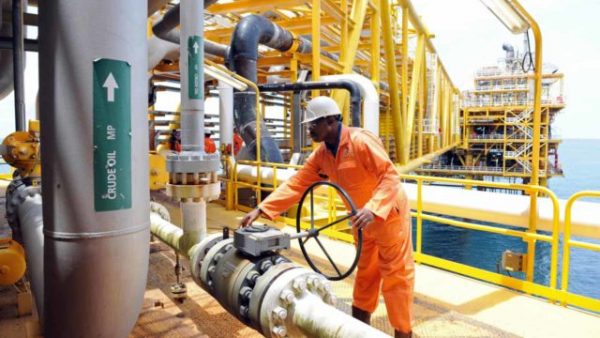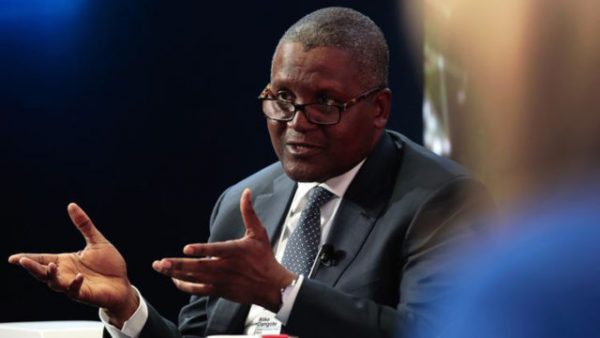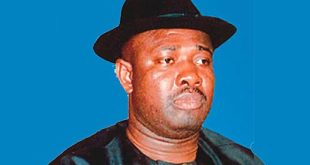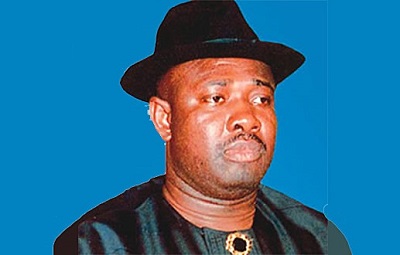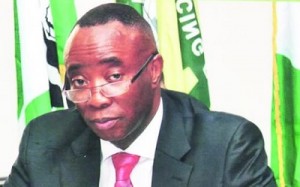
Stakeholders in the downstream subsector of Nigeria’s petroleum industry have stressed the need for a national refining policy, which defines the framework for encouraging investment in petroleum refining in Nigeria.
The stakeholders at the Ninth Oil Trading Logistics Africa Downstream Week 2015 held in Lagos, said the move would facilitate increased national revenue and infrastructure development.

Their views were contained in the communiqué released at the end of the conference signed by the Chairman, Advisory Board, OTL Africa Downstream Week, Mr. Reginald Stanley, and the Chairman, OTL Africa Downstream, Mr. Emeka Akabogu.
They said local refining of petroleum products should be prioritised by the country and a deliberate shift initiated from importing products to building refineries.

In view of the significant number of jobs accounted for by the downstream sub-sector of oil and gas, the private sector should be encouraged to drive the growth of the industry through institution of appropriate policies, they advised.

The legal framework on which the downstream petroleum sector is anchored, including the Petroleum Industry Bill, they emphasised, needed to be clarified and enacted with a view to ensuring legal certainty and promoting efficiency and competitiveness.
The annual OTL Africa Downstream Week is the continent’s leading business forum for unique insights into markets and emerging opportunities in addition to knowledge development, products showcase and recognition of excellence in the downstream petroleum value-chain.
It features a strategic conference, dedicated industry exhibition and the annual OTL Industry Dinner, organised in collaboration with key partners in government and the industry, and it is a pan – African initiative dedicated to promotion of business, policy and stakeholder relationships.
It achieves its goals through strategic government and business liaison, research and advocacy with a focus on effective industry solutions.
Stakeholders at the conference described subsidies on petroleum products as disincentive to supply chain infrastructure investment, market innovation and consumer value.
They said in view of current realities of low crude oil price and devalued naira, the country can no longer afford the burden of subsidies. The government, therefore, was strongly advised to remove all petroleum products subsidies as a matter of immediate urgency and fully deregulate the downstream petroleum industry.
They stressed, “Deregulation of the industry will attract appropriate investments, promote optimal efficiency, healthy competition, ensure efficient supply of petroleum products to the country and improve the infrastructure in the downstream sector.
“The Central Bank of Nigeria should make it easier in the interim, for importers of petroleum products to have access to Foreign Exchange while a transparent system for setting and publishing gasoline prices should be put in place.
“Crude for product swaps is a short-term solution for ensuring availability of petroleum products in Nigeria if managed transparently. Nigeria should move towards a collateralised crude for product swap which is more transparent and avoid off-shore processing agreement that is grossly abused worldwide.”
They said downstream expansion of our natural gas utilisation, with regulated gas price for domestic sales, governance limitation and institutional deficiency, constituted both a challenge and opportunity for gas supply.
They also recommended, “To stimulate investment in Liquefied Petroleum Gas, multiple taxes and high tariffs should be reduced while development of infrastructure and distribution channels such as, local cylinder manufacturing, storage facilities, filling plants, bob-tail trucks, gas pipeline for residential consumption, automobiles and petrochemical plants should be encouraged to enable the growth of LPG.
“Subsidy on kerosene should also be removed to encourage the growth of LPG consumption in Nigeria.
“Oil companies are encouraged to undertake good corporate social responsibility to preserve the communities where they operate and to create a form of investment through job creation; thereby reducing threats of piracy and sea robbery.”
To encourage the development of the lubricants and base oils market in Nigeria, stakeholders said regulators, operators and consumers need to work together to stop the importation of substandard lubricants as well as the activities of illegal blenders while research and development should be ongoing for production of base oil in Nigeria.
“We need to have a strong advocacy group to work with the regulatory body, to drive home the point that a good standard of quality of lubricants must be maintained,” they said.
According to them, there is the need to commercialise the pipelines by concessioning or outright sale, for an efficient distribution of the products, adding that it is prudent to invest in an oil spill surveillance technology to monitor oil spillage through pipeline vandalism.
 MMS PLUS NG – Maritime, Aviation, Business, Oil and Gas News Online Newspaper with coverage in Maritime, Oil and Gas, Aviation, Power and Energy as well as Financial News
MMS PLUS NG – Maritime, Aviation, Business, Oil and Gas News Online Newspaper with coverage in Maritime, Oil and Gas, Aviation, Power and Energy as well as Financial News




